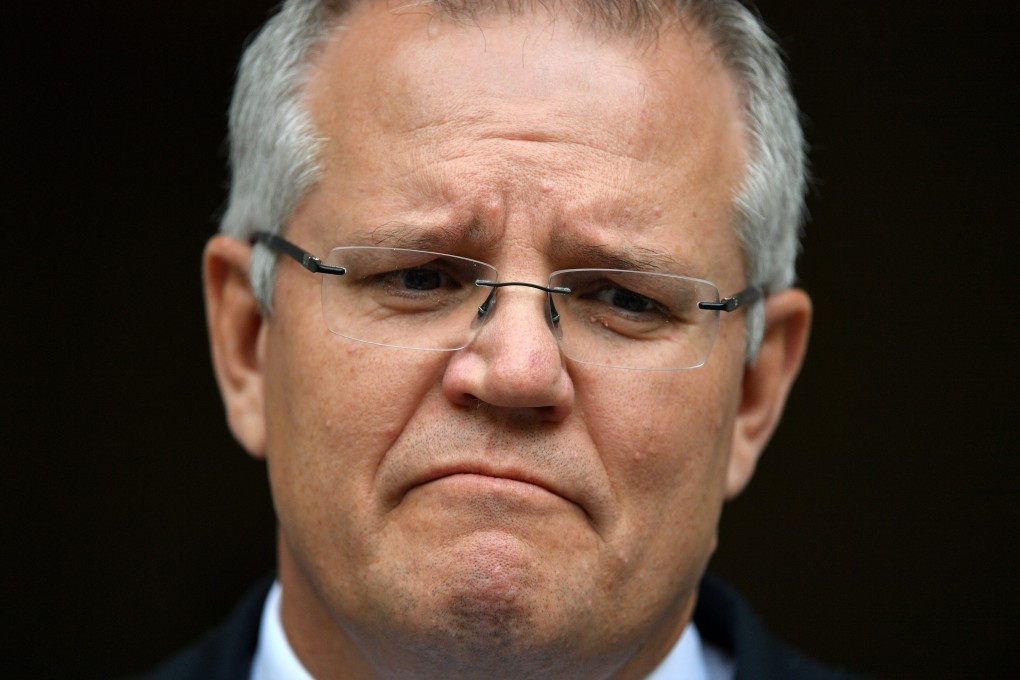Opinion | Scott Morrison’s stance on climate change is a ‘code red’ in itself
- The Australian prime minister pointed blame at China’s carbon footprint after the UN released a damning report on the effects of global warming
- His refusal to join the countries that have committed to net zero emissions comes as little surprise, given his record on climate issues

Most people, and most governments, would take what the UN has dubbed a “code red for humanity” as a clarion call for immediate action to bolster the increasingly fragile systems that support life on Earth. Most would consider the sequence of supposedly once-in-a-lifetime climate events that have occurred in rapid succession, from devastating wildfires in Australia and the United States to massive flooding in Germany, Belgium, and China.
Then again, most people are not Scott Morrison.
Australia is the world’s largest exporter of coal and gas, which together account for a quarter of its export income, or about A$120 billion (US$88 billion) a year. Coal has for years been ranked as Australia’s No 2 export behind iron ore, but its three biggest customers for the fuel – China, Japan, and South Korea – have all set zero-emissions targets, the latter two by 2050.
